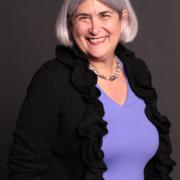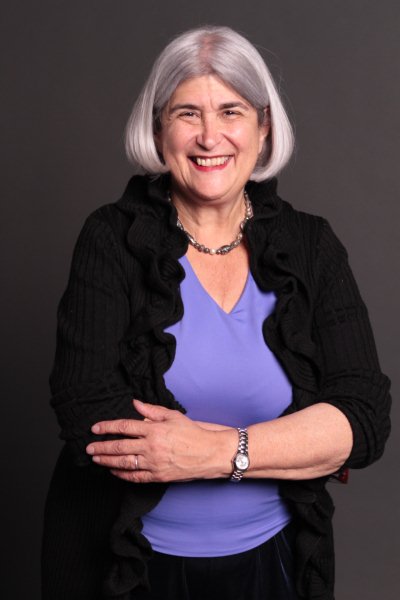
Profile
Judith P. Hallett specializes in Latin language and literature; women, sexuality and the family in ancient Greek and Roman society; and classical education and reception in the 19th and 20th century Anglophone world. Author of "Fathers and Daughters in Roman Society: Women and the Elite Family" (Princeton, 1984), Hallett has edited and contributed to several collections of essays. Among them are “Six North American Women Classicists” (special issue of the journal Classical World, 1996-1997) for which she wrote the featured article on Edith Hamilton; "Compromising Traditions: The Personal Voice in Classical Scholarship," with Thomas Van Nortwick of Oberlin College (Routledge, 1997); "Roman Sexualities," with Marilyn Skinner of the University of Arizona (Princeton, 1997); "Rome and Her Monuments: Essays on the City and Literature of Rome in Honor of Katherine A. Geffcken," with Sheila K. Dickison of the University of Florida (Bolchazy-Carducci, 2000); “Roman Mothers” (special issue of the journal Helios, 2006); and "British Classics Outside England: The Academy and Beyond," with Christopher Stray, University of Swansea (Baylor, 2008).
She is also the author of the four essays on classical Roman women authors in Women Writing Latin (Routledge, 2002) as well as numerous chapters in books, articles, reviews and translations into both English and classical Latin. A longtime editor of the journal Classical World, she has recently assumed the North American editorship of EuGeStA, a European-based online journal of gender studies in the fields of classics and classical reception, founded and edited by Jacqueline Fabre-Serris, University of Lille. Hallett received her B.A. from Wellesley College and her M.A. and Ph.D. in Classical Philology from Harvard University.
Video & Transcript
I’m Judith Peller Hallett and I’m a professor of classics in the College of Arts and Humanities.
Yeah, we are all Greeks and Romans. Whether we want to admit it or not, we very much uh, tread in, uh, the foots of these ancestors and we hope to be different and better from them, but we’ve inherited so much from them.
When I began to study Latin, topics such as women and gender were not getting much, if any attention. I happened to live at a time of the women’s movement and the sexual revolution and suddenly all these new questions were being asked that hadn’t been posed before.
I’m very interested in women’s roles in ancient Roman, but also Greek society. All Roman and Greek women who were born free were put into arranged marriages when they were very young and that caused all kinds of complications. But, I’ve also been interested in women and the political power that they’ve been able to achieve by their membership in these leading, wealthy families. Although they did not hold office, although they did not vote, they had a great deal of influence in their families and therefore a great deal of impact upon the Ancient Roman political scene.
It’s extremely important when you do research to honor and build on the research of other people that have gone before you. Everything we teach about the Ancient Greeks and Romans, everything we learn about it is the result of research by other people. The most important thing is that all of this evidence is either in Latin or Greek. You can use translations, but you can never completely trust a translation. So research involves a lot of reading, close attention to detail (especially language), but thinking big thoughts and asking new questions.
I think it’s very important that all research go beyond the academy and have an influence on people. Through the National Endowment for the Humanities, I have been extremely involved in a project called “Ancient Greeks and Modern Lives” and we’re taking ancient Greek literature about war, about veterans and we’re sharing it through public libraries with the military and the veteran’s community. We stage these scenes and provide people with background and opportunity to discuss these scenes almost as a kind of therapy for people in the military, coming back from the military, trying to make larger sense of their experience and where they’re going to go in the future.
I was so proud when this project was showcased at the White House last November and what was especially wonderful again, were all the women in the audience, some of them veterans some of them still in the military and what these different scenes from Greek literature meant to them.
My whole generation brought women and brought gender into the way we study the ancient world. We’ve already enjoyed a huge transformational impact while I’m sitting back and smiling and enjoying it and in fact we’re now moving beyond the ancient world to the way that classical reception is being looked at and to make sure that gender, male and female gender both, get examined when we talk about uh, the way, in which later societies have taught and reinterpreted classical works.
You know, the Greeks and the Romans are doing better than they did back in Greece and Rome for all kinds of reasons. They appeal to all kinds of individuals from different backgrounds and of different ages; they belong to everybody.
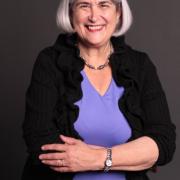 ,
, 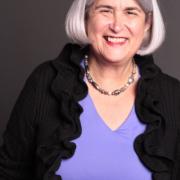 ,
, 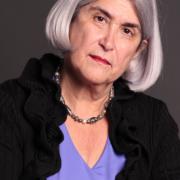 ,
, 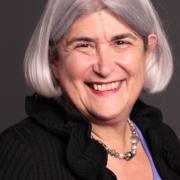 ,
, 